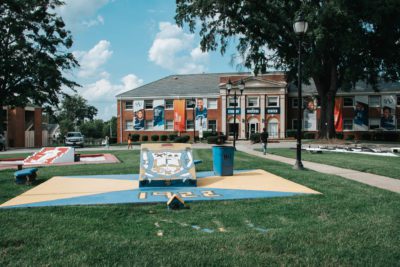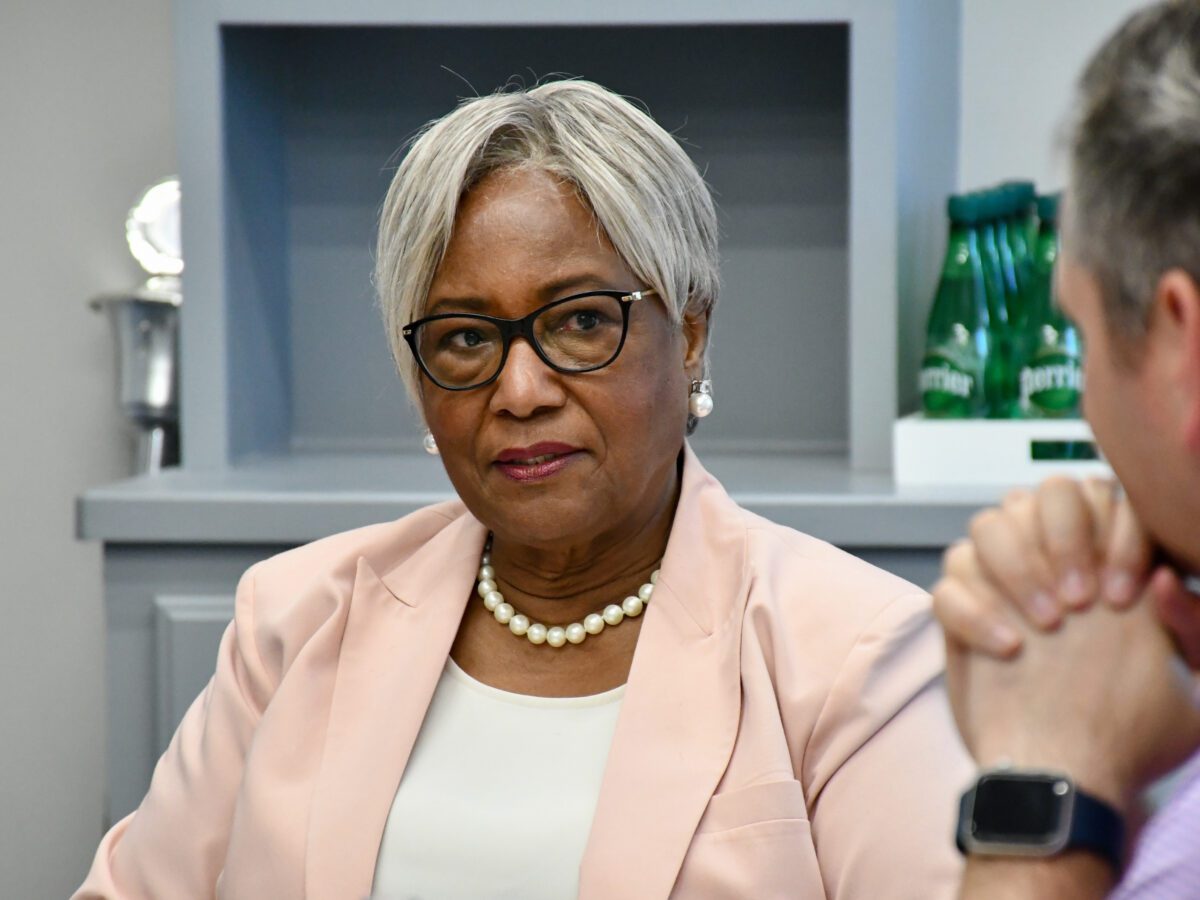
|
|
Saint Augustine’s University (SAU), a historically Black college and university (HBCU) founded in 1867 as the St. Augustine Normal School and Collegiate Institute, is rich in history.
“You don’t come to Saint Augustine’s University and not fall in love,” SAU President Dr. Christine McPhail, told us. “If you are here for more than hour, you will almost talk to the ancestors. There is no way you could not connect with this campus and not be uplifted by what people did over 150 years ago.”
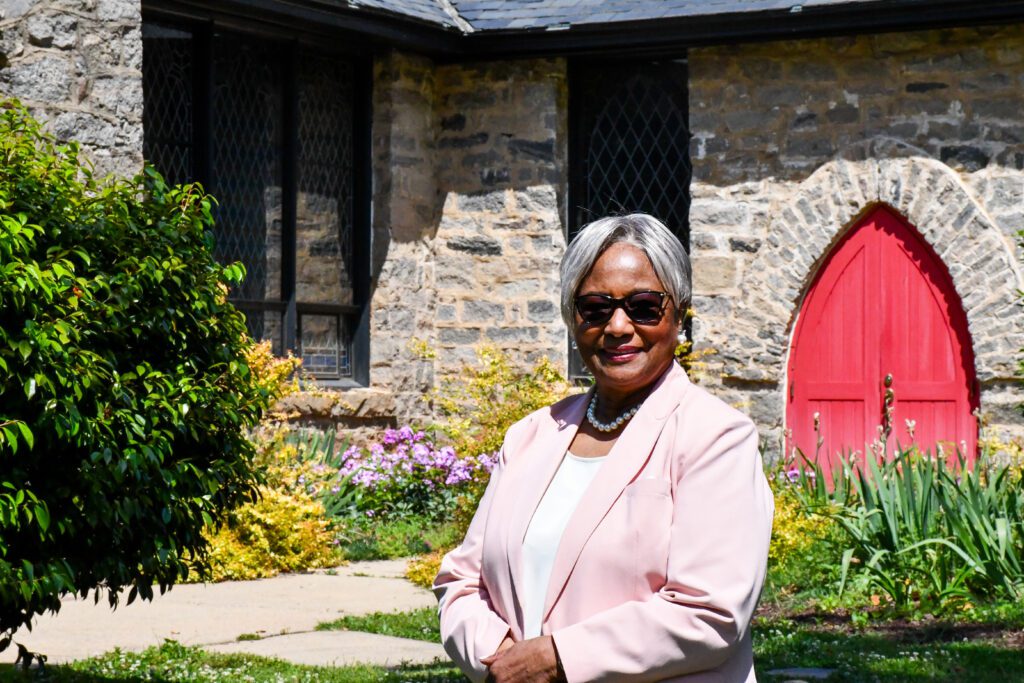
As I noted in my previous feature on SAU:
The school was founded by reverends and leaders from the Episcopal Church to educate Black children and train teachers. The school would go on to become a college in 1883.
In 1927, SAU became a four-year college with the class of 1931 receiving the first bachelor’s degrees from the institution.
Dr. McPhail is the 13th president of SAU and brings extensive experience in higher education to the position, including serving as the founding professor of the Community College Leadership Doctoral Program at Morgan State University. She also served as the president of Cypress College in California and as a professor of practice at Kansas State University in the John E. Roueche Center for Community College Leadership Development.
This experience makes her a strong candidate for the role — but she first found herself at SAU when her husband, Dr. Irving Pressley McPhail, was named the 12th president of the institution. Before coming to SAU, he served as the chancellor of the Community College of Baltimore County, the president of St. Louis Community College at Florissant Valley, and Lemoyne-Owen College in Memphis, Tennessee.
Tragically, Dr. Irving Pressley McPhail would only serve as president of SAU for three months before dying of complications from COVID-19.
Dr. McPhail traveled to New York while grappling with her loss. She was considering heading abroad to tackle some international work when the search committee for SAU called and asked her if she would consider returning to Raleigh to lead the university. Dr. McPhail shared that while she wasn’t expecting the call, SAU faculty and stakeholders had previously joked that she and her husband were a package deal, given their respective leadership experience in higher education.
Dr. McPhail, without hesitation, said yes to returning to the university that her husband had led. She has served as president since February of 2021.
When asked about her tenure, she said the past two-plus years have been, at turns, challenging and inspiring.
“What I like about this university — and inspires me every single day — is that our mission is very alive. We’re going to focus on student success, and everybody has a role to play, and we are going to work on long-term sustainability of the university. So even though I had a circuitous route to the presidency here, I think that I’m going to share with you the notion that it was destiny that I would end up here.”
Dr. Christine McPhail
Solving old challenges and focusing on student success and sustainability
In Dec. 2022, SAU was continued in accreditation for good cause and placed on probation by the Southern Association of Colleges and Schools Commission on Colleges (SACSCOC), which handles accreditation for many colleges and universities across the South.
“‘Good cause’ is an important qualifier for SAU,” reports this article by Diverse Education: Issues in Higher Ed. “The term specifically acknowledges that SAU has taken extensive measures to meet compliance within the last two years and the SACSCOC board feels confident SAU will meet expectations by the end of 2023.”
In a statement released by the school at the time of the announcement, McPhail promised a “Year of Progress, Transparency, and Partnership” as she outlined the college’s strategy:
“During the last two years, we have taken unprecedented action to protect and advance the fiscal health of Saint Augustine’s University. These efforts are reflected in the significant progress in areas such as increased enrollment, increased alumni and employee giving, increased grant activity, increased endowments, reduced student debt, improved upward mobility of graduates, and year-end balanced budgets. In addition, the University has increased the number of student internships, external partnerships, and strategic partnerships and alliances. While we are disappointed with the decision made by the SACSCOC Board, we are not discouraged; the entire SAU community has renewed our commitment to fulfill our vision and stay the course to complete our mission.”
Addressing these challenges in an interview, McPhail acknowledged shortcomings and deficiencies that predated her tenure — particularly within the business and financial aid departments. These “deficiencies” presented many of the challenges that led to the probation for good cause. “Recognizing the gaps was essential,” she said.
SAU also identified the need to enhance their documentation and record-keeping practices. “No more excuses,” McPhail emphasized during our conversation.
“Owning the problems and then looking at those big gaps and closing them was our focus,” she said. “We also tried to keep the staff from being demoralized about the challenges. I think it was very important that we met regularly with constituency groups and kept them engaged. We said, ‘This doesn’t define us. Keep studying, keep researching, and keep going.’”
A key part of the work moving forward for SAU is their partnerships with community colleges. McPhail’s background in the space has aided her in advancing articulation agreements and other partnerships with community colleges, both in North Carolina and beyond. McPhail nodded to her work in Michigan as one reason SAU now has articulation agreements with two-year institutions in the state.
McPhail believes increasing the enrollment of community college students at her institution will also support their broader mission to bolster student success.
“Students from community college know how to knock down barriers. So that’s why I believe they can be extremely successful when they come here,” McPhail noted.
She hopes SAU will be a trendsetter and that other HBCUs will follow their lead in deepening their relationships with community colleges.
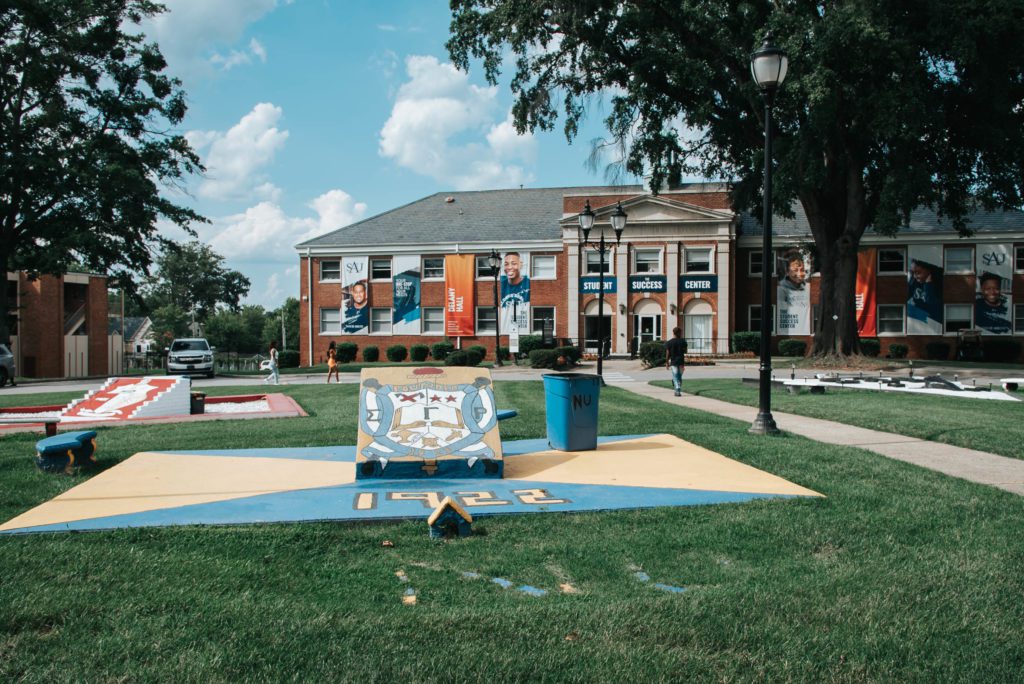
Dr. McPhail highlighted the pressing need to address health disparities, envisioning a key role for SAU in this endeavor. This new chapter would build off of the history of St. Agnes Hospital, established on the grounds of SAU to serve the Black population’s medical care during segregation.
“There are significant health disparities that we aim to address. Our vision is to re-establish St. Agnes as a Health Equity Center, focusing on studying and researching these disparities,” Dr. McPhail explained.
She mentioned ongoing collaborations with faculty, community organizations, and government
“We’ve had a good public health program for years, and we intend to advance it to new horizons,” she said, stressing the universal nature of many of the health issues faced in Southeast Raleigh and her hope that the Health Equity Center will contribute to the global conversation around improving public health.
Dr. McPhail is hopeful SAU will become increasingly known for its research and contributions in this space.
Meet Peter Musenge, a student at SAU
Peter Musenge is a researcher, a member of SAU’s Board of Trustees, and a biology and engineering mathematics double major. He is the middle of three children and a proud first-generation college student from Lusaka, Zambia.
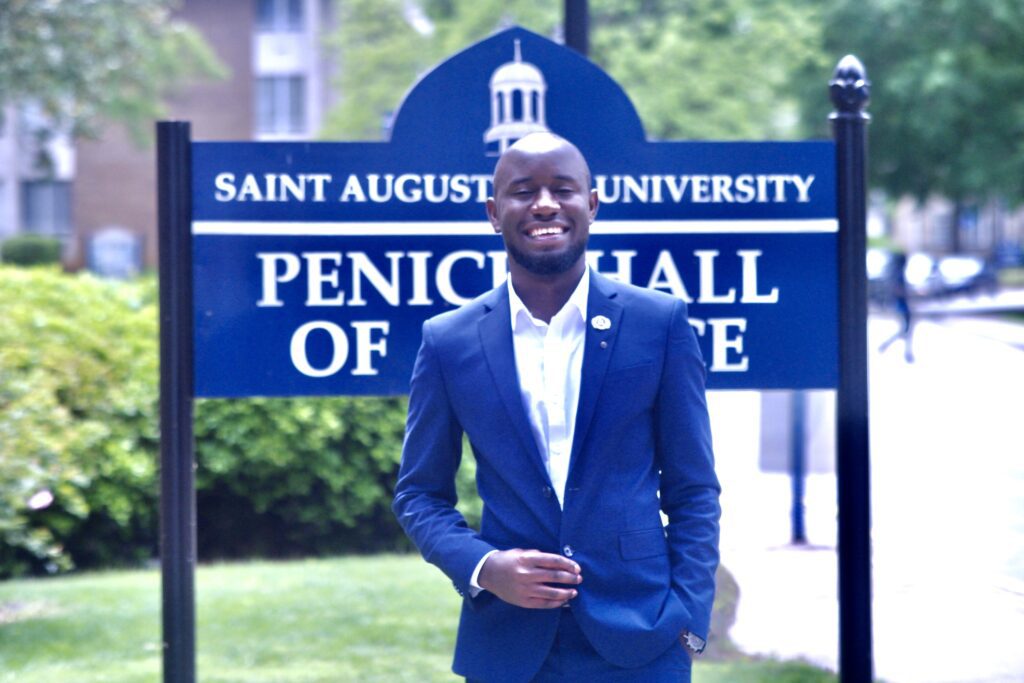
Musenge first learned about SAU through the New Seasons Youth Program. This nonprofit organization assists students from underserved regions in pursuing higher education. The director introduced Musenge to SAU. Musenge said the intimate class sizes, supportive environment, and financial aid packages that the college offered drew him in. He specifically pointed to the “family atmosphere” and “sense of community” he found as he researched the institution.
His experience at SAU also led him to a summer research internship at Stanford University. He applied to several programs across the country but couldn’t say no to Stanford, he said. His research dealt with the after-effects of gene therapy.
“When you undergo gene therapy, the modified genes will express proteins in your body that will be marked as ‘foreign’ by the immune system and hence will be attacked. So the question was, what can we do about gene therapy and the kinds of proteins produced in the body so that when your immune system attacks, you will still have those expressed proteins in your body functioning.”
Peter Musenge
Musenge spent two months at Stanford conducting this research. As for what is next, Musenge’s goal is to contribute to the community and community health regardless of where he is. What is one option? Musenge said, “I could see myself being the director of the World Health Organization.”
When asked if he would attend SAU if he was starting his journey over, he answered with a smile:
“I would choose Saint Augustine 10 out of 10 times. And primarily because I don’t think there’s any better school out there with a faculty and staff that are invested and engaged to see the progress in your academic and personal lives. Some professors call you over summer or winter break or ask if you need to do something specific with your life. So there’s this high investment of their time, talents, and efforts in you. Please tell me how many schools you can find where you come at 6 p.m. or 7 p.m., and you’ll find the dean seated helping a student with their math homework. And so if you want to learn and progress in your career, I think Saint Augustine’s University is the best place to do that.”
Peter Musenge



